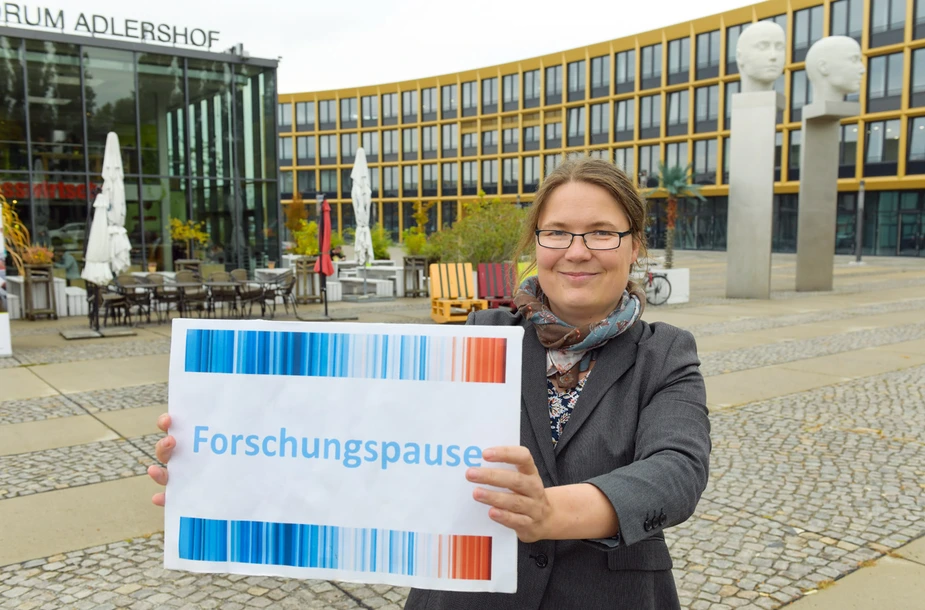The activist
Andrea Lübcke researches molecules and campaigns against climate change
She strongly disagrees that the issues she deals with on a day-to-day basis are exceptionally hard to grasp. Take a femtosecond, for example. What’s hard to grasp about that? It’s not hard if you try to imagine that a light beam takes 100 femtoseconds to pass through a strand of human hair. And it takes one second to travel from here to the moon. Isn’t that vivid enough?
Andrea Lübcke is staunchly convinced that science has a public duty and thus an obligation to convey its ideas in an appropriate language. Since past May, she has been volunteering in Eichwalde, where she lives, as a local politician for the Green Party. She gives presentations at schools to motivate girls to pursue a career in science. Moreover, for the past three months, she and her colleagues have been leading a protest against climate change in front of Forum Adlershof every Wednesday during their lunch break.
The 40-year-old’s desire to make a change in society is one reason why she is seeking out new challenges after conducting basic research at the Max Born Institute for Nonlinear Optics and Short Pulse Spectroscopy (MBI) since 2008.
She knew she had a knack for physics at school and went on studying physics and getting a PhD in Jena from 1997 to 2002. At MBI, Lübcke was involved in the world of femtoseconds for many years, where she observed the nature and speed of particle movement in molecules using laser pulses: ‘I was always interested how processes take place in real time.’ Most recently, her research dealt with the question why DNA-molecules did not decompose when hit by beams of light.
She never found a conclusive solution to this issue, much like the other issue that she has been dealing with as the MBI’s vice equal opportunities officer: where are the women in natural science research? In physics, 20% of graduates are female, however, ‘they are nowhere to be seen.’ Is it because of the working conditions? Is it because the schools do not encourage girls enough? As a mother of two sons of high-school age, she has often observed ‘the complete lack of girls at math competitions.’
In early August, she became part of a group of Adlershof-based scientists to protest climate change. They call their events ‘Forschungsstrejk’. By spelling the German word for ‘strike’ in Swedish, the group does not only pay homage to the Swedish activist Greta Thunberg but also exploits a labour law loophole. After all, many among the activists, says Lübcke, are civil servant lecturers who aren’t technically allowed to take part in an ‘official strike’.
The climate change is an issue weighing so heavily on her mind that she decided to leave the MBI come autumn. Could there be more pressing issues at stake than measuring speeds on the molecular level? ‘I can’t just go on like this,’ she is sure.
By Winfried Dolderer for Adlershof Journal
